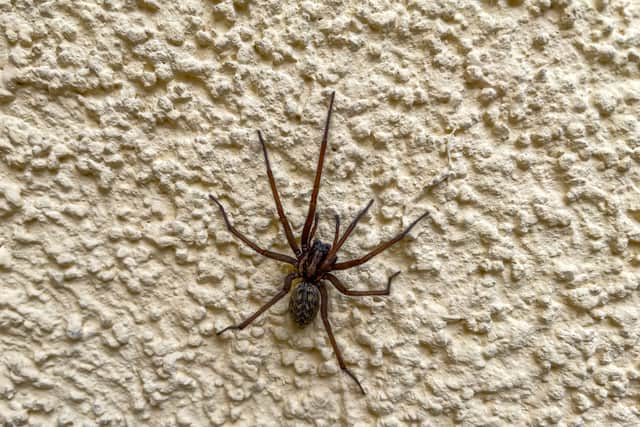How to keep spiders out of the house: Why are so many spiders around right now? What repels them?
Why are there so many spiders in UK houses?
‘Spider season’ is fast-approaching which means many us will start seeing more of the eight-legged beasties in the home. This is because the colder winter months are on their way and therefore spiders make their way into homes to source warmer habitats.
You will often see spiders first thing in the morning or late at night when the temperatures are at their coldest. Unlike female spiders, who are known to stay in one place for their lifespan, males are constantly on the move and thus we see many entering houses now as they seek warmer environments for mating.
Advertisement
Hide AdAdvertisement
Hide AdWhile sex-crazed spider invaders is a disturbing concept for those with arachnophobia, it is important to remember that spiders in Britain are - generally - completely harmless.


When is ‘spider season’?
Arachnophobes will be pleased to know that spider season does not last for very long in the UK - approximately only two weeks.
Typically it begins around the first or second week of September and finishes around the first or second week of October.


How to keep spiders out of the house?
Try using a ‘natural repellent’ e.g., peppermint oil or vinegar: spiders are put off by strong-smelling scents or acidic concoctions as they smell and taste through their legs, so walking through such solutions effectively repels them.
Maintain a clean house: spiders are attracted to dark and damp places as these are environments they thrive in, so maintaining a well kept home may discourage them from venturing inside.
Turn off outdoor lights: spiders, just like most creepy crawlies, have a natural attraction to bright lights, so favouring the natural light and turning off your outside ones can minimise how many approach your house.
Seal windows, doors and other ‘gaps’: what better way to stop spiders entering your home than to create a physical barrier, DIY sealants are recommended as means of sealing small crevices around windows and doors.
Embrace a healthier diet of citrus fruits: by consuming more citrus fruits like oranges, for example, you can use what remains to emit a potent smell that the spiders - as with other natural deterrents - are repelled by.
How long do spiders live for?
Advertisement
Hide AdAdvertisement
Hide AdAccording to the Woodland Trust, most spiders in the UK live for approximately one year. Female spiders, however, are known to live for longer – up to three years if they remain indoors, safe from predation.
An Australian trapdoor spider was the longest recorded living spider in the world making it to the unbelievable age of 43 before perishing to a wasp.
Do spiders in the UK bite humans?
According to the Natural History Museum, there are over 650 species of spiders in the UK but only 12 of these have been recorded as being “able” to bite us. Of these 12 spiders only two or three have been recorded to deliver a “significant” bite.
This includes the false widow, the woodlouse, and the cellar spider, and none of the three are poisonous - so don’t be too worried.
Comments
Want to join the conversation? Please or to comment on this article.
